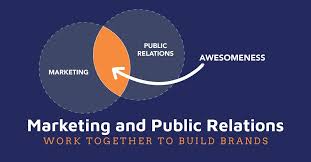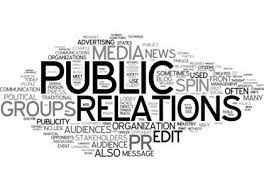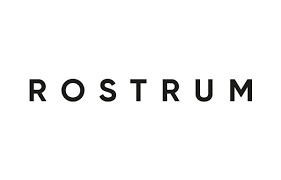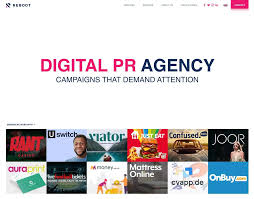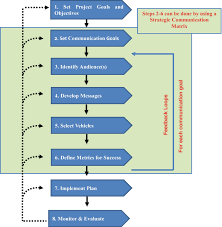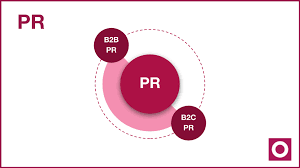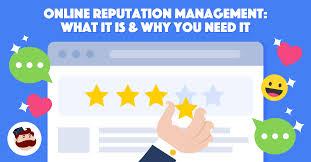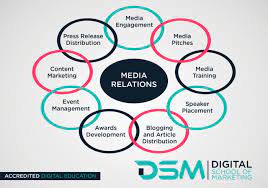Unlocking the Power of Public Relations in Modern Marketing Strategies
The Role of Public Relations in Marketing
Public relations (PR) plays a crucial role in the field of marketing by helping businesses build and maintain positive relationships with their target audience, media, and other stakeholders. PR is a strategic communication tool that focuses on managing the reputation of a company and enhancing its visibility in the market.
One of the key aspects of PR in marketing is creating and maintaining a strong brand image. PR professionals work to shape how the public perceives a company through various communication channels, such as media placements, press releases, events, and social media engagement. By crafting compelling stories and messages, PR helps businesses establish credibility and trust among their audience.
In addition to brand building, PR also plays a vital role in crisis management. When faced with negative publicity or challenges, PR professionals step in to mitigate damage to the company’s reputation. Through effective communication strategies, they help businesses navigate through crises and maintain a positive image in the eyes of the public.
Furthermore, PR complements marketing efforts by generating earned media coverage. Unlike paid advertising, earned media includes publicity gained through promotional efforts other than paid advertising. This can include media mentions, editorial coverage, influencer partnerships, and more. By securing positive media coverage through PR initiatives, businesses can reach a wider audience and build credibility without directly paying for it.
Overall, integrating public relations into marketing strategies is essential for building brand awareness, managing reputation, and fostering meaningful relationships with stakeholders. By leveraging the power of PR alongside traditional marketing tactics, businesses can create a comprehensive communication strategy that drives success in today’s competitive marketplace.
9 Essential Public Relations Tips for Effective Marketing Success
- Establish clear communication objectives for your PR campaigns.
- Build strong relationships with journalists and media outlets.
- Create compelling and newsworthy stories to attract media attention.
- Monitor and respond to online conversations about your brand or industry.
- Utilise social media platforms effectively to engage with your audience.
- Be transparent and honest in all communications with the public.
- Stay up-to-date with current events and trends to capitalise on PR opportunities.
- Measure the effectiveness of your PR efforts through key performance indicators (KPIs).
- Adapt and adjust your PR strategies based on feedback and results.
Establish clear communication objectives for your PR campaigns.
Establishing clear communication objectives for your PR campaigns is essential in ensuring the success of your marketing efforts. By defining specific goals and outcomes that you aim to achieve through PR activities, you can align your strategies with your overall business objectives. Clear communication objectives help focus your efforts, measure success, and guide the direction of your campaigns. Whether it’s increasing brand awareness, enhancing reputation, or driving engagement, setting precise communication objectives allows you to track progress effectively and adjust strategies as needed to maximise the impact of your PR initiatives.
Build strong relationships with journalists and media outlets.
Building strong relationships with journalists and media outlets is a vital tip in public relations for marketing success. By establishing trust and rapport with key media professionals, businesses can enhance their chances of securing valuable media coverage and gaining exposure to a wider audience. Maintaining open lines of communication, providing relevant and timely information, and offering exclusive insights can help cultivate lasting partnerships with journalists, leading to increased visibility and credibility for the brand. Strong relationships with the media not only result in positive press coverage but also enable businesses to effectively convey their messages and stories to the public through trusted channels.
Create compelling and newsworthy stories to attract media attention.
To enhance the effectiveness of public relations in marketing, it is crucial to create compelling and newsworthy stories that capture the attention of the media. By crafting narratives that are engaging, relevant, and timely, businesses can increase their chances of securing media coverage and reaching a broader audience. These stories should resonate with journalists and offer unique angles that differentiate them from other content in the market. By focusing on creating valuable and attention-grabbing narratives, companies can establish themselves as thought leaders in their industry and enhance their brand visibility through strategic PR initiatives.
Monitor and respond to online conversations about your brand or industry.
Monitoring and responding to online conversations about your brand or industry is a crucial tip in public relations for marketing. In today’s digital age, social media and online platforms serve as key channels for communication and engagement with customers. By actively listening to what people are saying about your brand or industry online, you can gain valuable insights into public perception, identify potential issues or trends, and engage with your audience in a meaningful way. Timely and strategic responses to online conversations demonstrate transparency, responsiveness, and a commitment to customer satisfaction, ultimately enhancing your brand’s reputation and credibility in the digital landscape.
Utilise social media platforms effectively to engage with your audience.
To maximise the impact of your public relations efforts in marketing, it is essential to utilise social media platforms effectively to engage with your audience. Social media provides a direct and interactive channel for businesses to connect with their target market, share relevant content, and build relationships. By engaging with followers through meaningful conversations, responding to inquiries promptly, and sharing valuable insights, businesses can strengthen their brand presence, increase brand loyalty, and drive engagement. Leveraging social media as part of your PR strategy not only enhances visibility but also allows for real-time communication and feedback that can help shape a positive brand perception in the digital landscape.
Be transparent and honest in all communications with the public.
In the realm of public relations in marketing, a fundamental tip for success is to maintain transparency and honesty in all communications with the public. By being open and truthful in messaging, businesses can build trust and credibility with their audience. Transparency fosters authenticity and demonstrates a commitment to ethical practices, which is essential for establishing strong relationships with customers, media, and other stakeholders. When businesses uphold transparency in their communications, they not only enhance their reputation but also create a foundation of trust that can lead to long-term success in the competitive market landscape.
Stay up-to-date with current events and trends to capitalise on PR opportunities.
Staying up-to-date with current events and trends is crucial in the realm of public relations within marketing. By keeping a pulse on what’s happening in the world, businesses can identify timely PR opportunities to align their brand messaging with relevant topics and conversations. Capitalising on these opportunities allows companies to engage with their audience in a meaningful way, demonstrate thought leadership, and stay ahead of the competition. Being proactive and responsive to current events through strategic PR initiatives can enhance brand visibility, credibility, and resonance with target audiences.
Measure the effectiveness of your PR efforts through key performance indicators (KPIs).
To ensure the success of your public relations efforts in marketing, it is essential to measure their effectiveness through key performance indicators (KPIs). By defining specific metrics that align with your PR goals, such as media coverage, brand sentiment, website traffic, or social media engagement, you can track and evaluate the impact of your PR campaigns. Monitoring KPIs allows you to gain valuable insights into the performance of your PR strategies, identify areas for improvement, and demonstrate the value of PR in contributing to overall marketing objectives. Effective measurement and analysis of KPIs enable you to make informed decisions and refine your PR tactics for maximum impact and results.
Adapt and adjust your PR strategies based on feedback and results.
Adapting and adjusting your public relations strategies based on feedback and results is crucial in ensuring the effectiveness of your marketing efforts. By carefully analysing the outcomes of your PR campaigns and listening to feedback from stakeholders, you can identify areas for improvement and make necessary changes to optimise your communication approach. This iterative process allows you to refine your strategies, resonate better with your target audience, and ultimately achieve greater success in building brand reputation and engagement. Embracing a flexible and responsive mindset towards PR strategies enables businesses to stay agile in a dynamic market environment and continuously enhance their communication impact.



